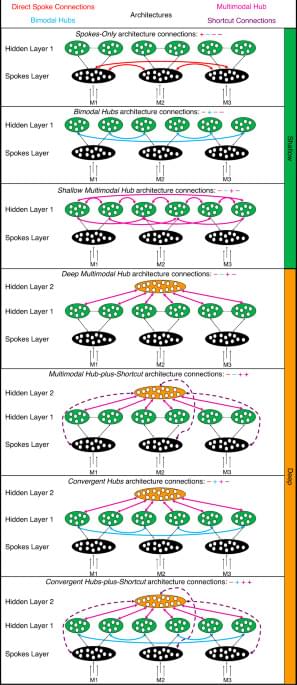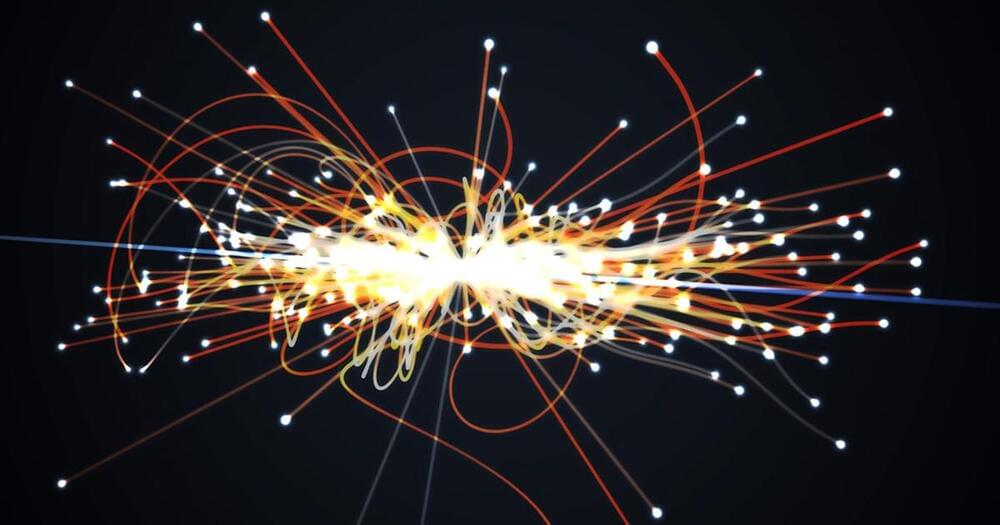But, given the rapidly evolving quantum computing landscape, that may not matter.



TSMC getting half their factory paid for by the Japan government shows how concerned governments are getting about the fact that we are down to 3 companies in the world that can make high-end chips. Sony is also contributing $500 million to this factory in addition to the Japan government money.
Japan will provide 600 billion yen ($5.2 billion) as part of its fiscal 2021 supplementary budget to support advanced semiconductor manufacturers.



And that’s where physicists are getting stuck.
Zooming in to that hidden center involves virtual particles — quantum fluctuations that subtly influence each interaction’s outcome. The fleeting existence of the quark pair above, like many virtual events, is represented by a Feynman diagram with a closed “loop.” Loops confound physicists — they’re black boxes that introduce additional layers of infinite scenarios. To tally the possibilities implied by a loop, theorists must turn to a summing operation known as an integral. These integrals take on monstrous proportions in multi-loop Feynman diagrams, which come into play as researchers march down the line and fold in more complicated virtual interactions.
Physicists have algorithms to compute the probabilities of no-loop and one-loop scenarios, but many two-loop collisions bring computers to their knees. This imposes a ceiling on predictive precision — and on how well physicists can understand what quantum theory says.

New work on linear-probing hash tables from MIT
MIT is an acronym for the Massachusetts Institute of Technology. It is a prestigious private research university in Cambridge, Massachusetts that was founded in 1861. It is organized into five Schools: architecture and planning; engineering; humanities, arts, and social sciences; management; and science. MIT’s impact includes many scientific breakthroughs and technological advances.

The most promising application in biomedicine is in computational chemistry, where researchers have long exploited a quantum approach. But the Fraunhofer Society hopes to spark interest among a wider community of life scientists, such as cancer researchers, whose research questions are not intrinsically quantum in nature.
“It’s uncharted territory,” says oncologist Niels Halama of the DKFZ, Germany’s national cancer center in Heidelberg. Working with a team of physicists and computer scientists, Halama is planning to develop and test algorithms that might help stratify cancer patients, and select small subgroups for specific therapies from heterogeneous data sets.
This is important for precision medicine, he says, but classic computing has insufficient power to find very small groups in the large and complex data sets that oncology, for example, generates. The time needed to complete such a task may stretch out over many weeks—too long to be of use in a clinical setting, and also too expensive. Moreover, the steady improvements in the performance of classic computers are slowing, thanks in large part to fundamental limits on chip miniaturization.
Check out the physics courses that I mentioned (many of which are free!) and support this channel by going to https://brilliant.org/Sabine/ where you can create your Brilliant account. The first 200 will get 20% off the annual premium subscription.
What are the quantum technologies that are now attracting so much research funding? In this video I go through the most important ones: quantum computing, quantum metrology, the quantum internet, and quantum simulations. I explain what these are all about and how likely they are to impact our lives soon. I also tell you what frequently headline blunders to watch out for.
The White House report I mention at 10 mins 34 seconds is here:
https://www.quantum.gov/wp-content/uploads/2020/10/QuantumFrontiers.pdf.
Please consider supporting our channel on Patreon:

Work has potential applications in quantum computing, and introduces new way to plumb the secrets of superconductivity. MIT physicists and colleagues have demonstrated an exotic form of superconductivity in a new material the team synthesized only about a year ago. Although predicted in the 1960s.
“An important theme of our research is that new physics comes from new materials,” says Joseph Checkelsky, lead principal investigator of the work and the Mitsui Career Development Associate Professor of Physics. “Our initial report last year was of this new material. This new work reports the new physics.”
Checkelsky’s co-authors on the current paper include lead author Aravind Devarakonda PhD ’21, who is now at Columbia University. The work was a central part of Devarakonda’s thesis. Co-authors are Takehito Suzuki, a former research scientist at MIT now at Toho University in Japan; Shiang Fang, a postdoc in the MIT Department of Physics; Junbo Zhu, an MIT graduate student in physics; David Graf of the National High Magnetic Field Laboratory; Markus Kriener of the RIKEN Center for Emergent Matter Science in Japan; Liang Fu, an MIT associate professor of physics; and Efthimios Kaxiras of Harvard University.
New quantum material
Classical physics can be used to explain any number of phenomena that underlie our world — until things get exquisitely small. Subatomic particles like electrons and quarks behave differently, in ways that are still not fully understood. Enter quantum mechanics, the field that tries to explain their behavior and resulting effects.

Using a focused laser beam, scientists can manipulate properties of nanomaterials, thus ‘writing’ information onto monolayer materials. By this means, the thinnest light disk at atomic level was demonstrated.
The bottleneck in atomic-scale data storage area may be broken by a simple technique, thanks to recent innovative studies conducted by scientists from Nanjing Normal University (NJNU) and Southeast University (SEU).
Through a simple, efficient and low-cost technique involving the focused laser beam and ozone treatment, the NJNU and SEU research teams, leading by Prof. Hongwei Liu, Prof. Junpeng Lu and Prof. Zhenhua Ni demonstrated that the photoluminescence (PL) emission of WS2 monolayers can be controlled and modified, and consequently, it works as the thinnest light disk with rewritable data storage and encryption capability.